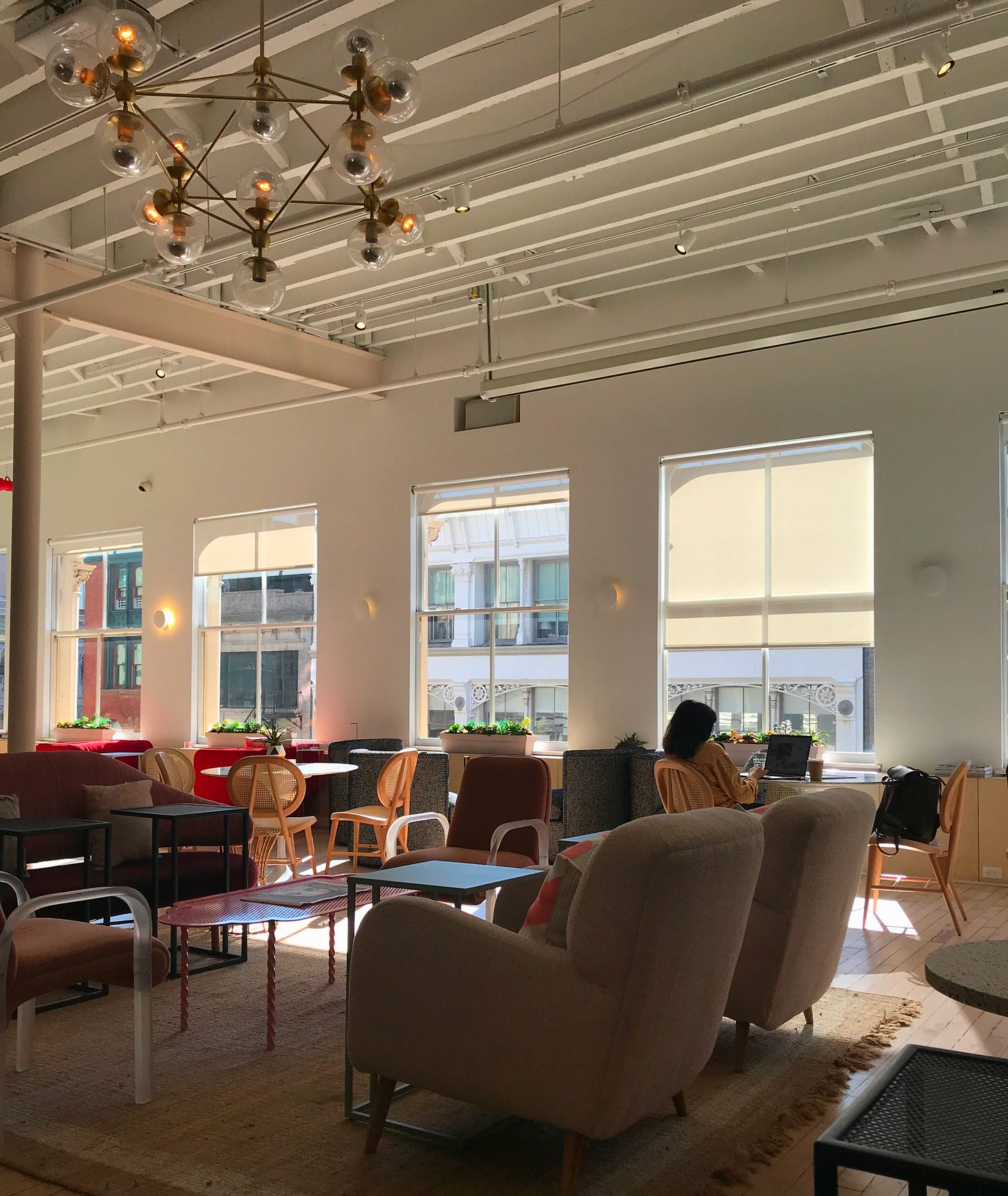What Do We Owe Each Other?
"When we tore down what confined us, what did we have in mind to replace it?”
Today’s edition of Sea Legs is the first in a series that I’m calling “What Do We Owe Each Other?” I plan on examining the relationships we carry throughout our lives and what, exactly, we owe these connections.
About halfway through Sally Rooney’s 2021 book Beautiful World, Where Are You?, the protagonist, Alice, writes an email to her best friend Eileen, justifying her fascination with Jesus as a historical figure and explaining why his teachings on ‘loving thy neighbor’ resonate so much with her. She writes:
“In public I'm always talking about care ethics and the value of human community, but in my real life, I don't take on the work of caring for anyone except myself…Of course if we all stay alone and practice celibacy and carefully police our personal boundaries, many problems will be avoided, but it seems we will also have almost nothing left that makes life worthwhile. I guess you could say the old ways of being together were wrong—they were!—and that we didn’t want to repeat the same mistakes—we didn’t. But when we tore down what confined us, what did we have in mind to replace it?”
In other words: Our culture has declared independence from patriarchal structures of needing to be married off by 24, popping out babies without proper planning, and deferring to the men in our lives for hard decisions. We embrace same sex unions because it’s profoundly weird to give a shit about someone’s sexual preference. We prioritize education for boys and girls because educating both sexes is simply good economics. These are all good things, full stop.
But we haven’t really built a new, fully formed world beyond that. We work (oftentimes without needing to leave the house!), sit on Zoom, finish work, then swipe and scroll for anything else we might need: food, sex, entertainment. We have friends but struggle to make new ones after a certain age because we lack new avenues to do so—once education is finished and you’ve sussed out your colleagues, what else is there?
Or put more bluntly: We’re more independent and autonomous than we’ve ever been. What new social fabric do we want to create to ensure we aren’t lonely?
Around the same time I was underlining that passage in Rooney’s novel, I came across this tweet, which stopped me in my tracks:
My husband is a returned Peace Corps volunteer, and I got to hand it to them—that is a community. If a friend is bringing their family to NYC, someone will house them. They go out of their way to plan reunions. There were moments when I found this grating. Why do they always want to go on group trips? Why is there always an expectation that the NYC crew will drop everything when someone visits from out of town? I didn’t grow up with any community of any sort, so it was a steep learning curve when we started living together. But, to this writer’s point, that is the price I (as a Peace Corps spouse) pay for my husband to be a part of a very close, micro-community. My annoyances were a ‘me’ problem.
So where do we find this kind of closeness? Joining the Peace Corps is…an extreme option (and if Elon and Trump get their way, it won’t be an option for anyone soon!)
A simple solution is establishing a new generation of third places—spaces where individuals can gather and spend time. Traditionally, houses of worship served as the most notable third places, but their numbers are decreasing as more young Americans disengage with organized religion. While coffee shops once flourished as third places in urban settings, their role diminishes as mobile pick-up orders outpace prolonged stays.
In the 2010s, there was a wave of more contemporary third places with the rise of WeWork and its GirlBoss counterpart, The Wing (which, full disclosure, I was a member of, and tbh, I miss it!). This collapsed for various reasons—the cost of membership, the sticky identity politics of the late 2010s, a wannabe cult leader at the helm, and, of course, a global pandemic.

But I’m calling it now: The back half of the 2020s will be fixated on ‘third places’ in a way that ‘self-care’ was a focus in the late 2010s. Instead of ‘treat yoself,’ we are going to be focused on places that feel contemporary and fresh but allow us to meet people in a low-pressure setting. We’re going to shift from self-soothing to slow-building social trust.
In his farewell letter published in January, Vivek Murthy, the Surgeon General under Obama and Biden, discussed what he perceived as the most pressing public health issue: loneliness and the decline of community. He writes:
“Today, we are faced with a profound choice: do we continue with the status quo, marked by pain, disconnection, and division? Or do we choose a different path—one of joy, health, and fulfillment…where we recognize community as the irreplaceable foundation for our well-being?As I finish my tenure as Surgeon General, this is my parting prescription, my final wish for all of us: choose community.”
There are short-term annoyances to building and creating a community. It’s annoying to make small talk. It’s annoying to have to introduce yourself and explain what you do. It’s annoying to make space for other people’s quirks.
But the alternative—the slow drift into isolation, hyper-individualism, the absence of being known—is worse.
I’m unsure what best replaces what we tore down, and I don’t know exactly what scaffolding we should start building. But I do hope we all start trying.
Even if it’s awkward at first. Even if it’s messy or imperfect. Even if it means going on that damn group trip.




Loved this one, Mattie!
What a good reminder, Mattie.
Loved this post!